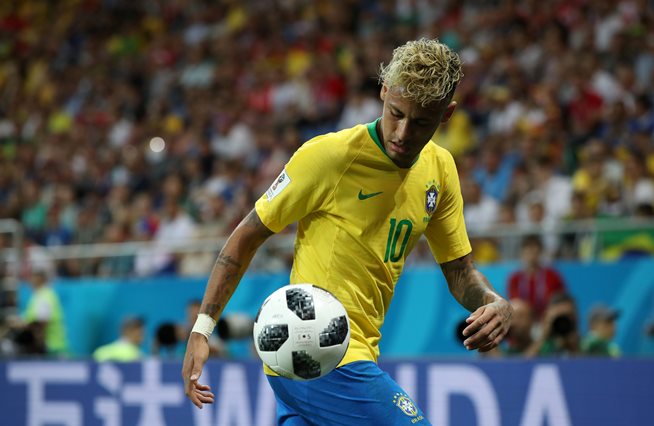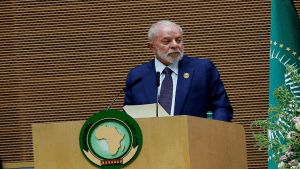The 2018 FIFA World Cup is halfway and as expected, the first two weeks have not been without surprises. Who would have predicted Germany, the depending champions, would be dumbed out in the groups stages?
Let us reflect…
At this stage, one can only appreciate the realities of this game.
Half of the 32 team teams, which qualified for the tournament following a very rigorous and extended period of qualifiers in their respective continents, have had all their efforts come to an abrupt end. Some were already out after their first two fixtures. They only remained in Russia solely to honour their fixture obligations for the match which was to have no bearing whatsoever on their progression to the next phase.
As was indicated, teams with no Progressive National Playing Philosophy have fallen out in the first round. Some teams have this important element intact, but have, nonetheless, fallen trap of keeping an ageing team and/or predictable players.
Spain and Germany, while having a clearly defined playing philosophy, are classical examples – despite Spain having struggled through to the knockout stage and stumbling on.
Spotlight on Africa…
Mainly, that’s the reason why teams from Africa are eliminated in the first round. This happens despite the amount of talent on the continent, and the competent coaches in charge.
However, there are two crucial aspects that they lack:
- The long-term, organisational and technical plan at national level that is implemented and monitored at all levels and areas where people live (rural and urban). Winning the Soccer World Cup starts when the player enters the field of play at their youngest age. The first time they start playing is the first day they prepare to be champions. Anything later will give the country any position, starting from 5th going to 32 (or to 48-come 2026)
- The playing concept that is woven with the coaching methodology, based on the strengths of the bigger pool with natural traits of players from that country.
Unless and until these two aspects are respected, Africa will continue to be part of the FIFA Family and only make impact at all “political/administrative/medical/etc.”, but never at the technical level – the football field at the highest level (The quadrennial FIFA World Cup).
If you are still questioning the capacity of the African continent, try explain the dominance of African teams in the FIFA Youth Competitions only to come so short at the senior stage. Therein lies answers for Africa – natural talent in abundance, but falls off or ‘poisoned’ through the stages of development.
The only “successes” that African countries have had at this stage have been “surprise” teams. This is when an unknown team comes to a competition with no expectation from outside (including the opponents), and play above themselves. Cameroon in 1990; Nigeria in 1994; Senegal in 2002; and Ghana in 2010. The reason these performances are not sustainable, mainly if not totally, is due to the lack of the two very critical items mentioned above.
Lately, Africa is even struggling on the match officials’ number at the highest level.
Statistical shock…
The statistic per confederation is scary and paints a bleak but true picture about African football teams that were in Russia, and by extension all in the continent.
| CONFEDERATION | NUMBER OF COUvNTRIES IN THE FIRST ROUND (32) | NUMBER OF COUNTRIES IN THE SECOND ROUND (16) |
| AFC | 5 | 1 20% |
| CAF | 5 | 0 0% |
| CONCACAF | 3 | 1 33.3% |
| CONMEBOL | 5 | 4 80% |
| OCEANA | 0 | 0 |
| UEFA | 14 | 10 71% |
| TOTAL | 32 | 16 |
It is clear that we will see some teams with great quality failing to reach the Round of 8.
The teams that have their own Playing Identity – call it culture – are easy to see and are making progress. It is not surprising that Asia has made such strides and competes with equal numbers as Africa, but with better outcomes. The results between Japan-Colombia, Iran-Portugal/Spain and Korea Republic-Germany, bear testimony to this assertion.
This trend of Asia overtaking Africa is even more pronounced in women football, where they have a world champion at senior level.
It cannot be that Africa is only trying to get to the second round. That should be a given, as all groups have four teams, irrespective of the confederations they come from.
National playing philosophy triumphs…
As was predicted, nations with distinct styles of play/coaching (even if not so superior), and thereby quality players, have progressed (in groups’ order), Russia and Uruguay; Spain and Portugal; France and Denmark; Croatia and Argentina; Brazil and Switzerland; Sweden and Mexico; England and Belgium; as well as Colombia and Japan.
The three teams in bold text were not included in the world cup preview article and have taken the places of Peru, Serbia and Germany, respectively. They have made it even though they are not convincing. They neither have distinct style (for the future) nor top quality players. They are an “exception”, just like the exit of German, was. It will not be a surprise if they were to fall in the next round, except that Sweden will face Switzerland. This ensures that one of them will get to the Quarterfinals.
While all measures are in place to keep the top teams away from facing each other early, those who do not live up to expectation, unfortunately put this whole exercise to waste. We now have a fixture of former world champions, France-Argentina in the Last 16.
Thanks to Korea Republic, we will not have Brazil-Germany, in the Round of 16.
Over and above national playing philosophy, nations and teams with quality players, even if they are not convincing, that have progressed to the Round of 16 are likely to get to the Round of 8. They may not get to the Round of 4. However, with so many previous world cup champions, bunched in the same side of the path to the final, where they will eliminate one another, there is now a chance that an outsider may reach the semifinal, and maybe even the final.
Croatia could be that team.
The other clear aspect is that teams with players who come from defined playing philosophy, even if they are scattered all over, take time to gel. They have had poor starts, but are gaining momentum as the competition progresses. Bar internal squabbles, they pose the biggest threat to lifting the cup. The South Americans are such a bunch. Sadly for them, only one of the three (Argentina, Brazil, and Uruguay), may reach the final. Brazil looks the most likely, among them all.
From the way the fixtures have been poised, teams that may not have all 3 aspects may now make it to the semifinals. One of these will reach the semifinal – Colombia, England, Sweden or Switzerland.
These three aspects are:
- Progressive National Playing Philosophy
- Quality Players
- A Star
Without all of these, reaching the semifinal will remain a wish, a hollow one for that matter, for any of the African countries to compete for a place in the last four, never mind to win the World Cup. The true measure of the team potential is when there is everything to play for. Performances above expectations that come when the team is already packing to go home, count for nothing. They are, at best, a farce – only there to create a false impression about the “future”.
The most unfortunate part (due to some teams underperforming in the first round), is that we will only have one of the following teams in the final (in alphabetic order ) Argentina, Belgium, Brazil, France, Portugal, Uruguay. This gives teams that otherwise, would not have reached the last four, a chance to make a name.
Some potential semifinal (even final) matches will be played in the Round of 16 – Argentina-France and Portugal-Uruguay.
Most importantly, only one of these four will reach the semifinal.
There is big chance that the final will be contested between South America (CONMEBOL) and Europe (UEFA), just like the last one in Brazil.
At least for the Round of 16, we are still to see the stars from different teams. These players provide the spark and glitter to the event.
Players like (in alphabetic order), Hazard-Belgium, Iniesta-Spain, James-Colombia, Messi-Argentina, Modric-Croatia, Neymar-Brazil, Pogba-France, Ronaldo-Portugal and Suarez-Uruguay, make the World Cup a spectacle that it is. There are others in the same teams that are not mentioned here who may be equally capable to provide the same.
When the opponents plan against such teams with stars, half the preparation is about handling the star from the opponent. This is the deciding factor.
Even before the game starts, the opponents’ star has already influenced the game plan and may even be ahead by kick-off. It does not need a goal for the team with a star to have an upper hand. You cannot overlook this fact.
A star needs special attention. Period! Ignore this fact at your own peril.
Then there are teams that just play together and get the results. Such teams have very little chance to lift the cup. Germany was an exception in 2014.
Unless things change dramatically (which happens without any pattern in football), Brazil should reach the final and face either Spain or Croatia.
One thing is clear. Missing a world cup, is a huge disadvantage. When you return, you are a few steps behind those were always there. This affected Peru with all the potential that they showed. The teams that had to win their last group game, and won them, would have benefitted a lot from having been in the previous ones. The likes of Argentina, Colombia, Portugal, are proof to that. .
THE WORLD CUP BEGINS NOW
By Zipho Dlangalala






